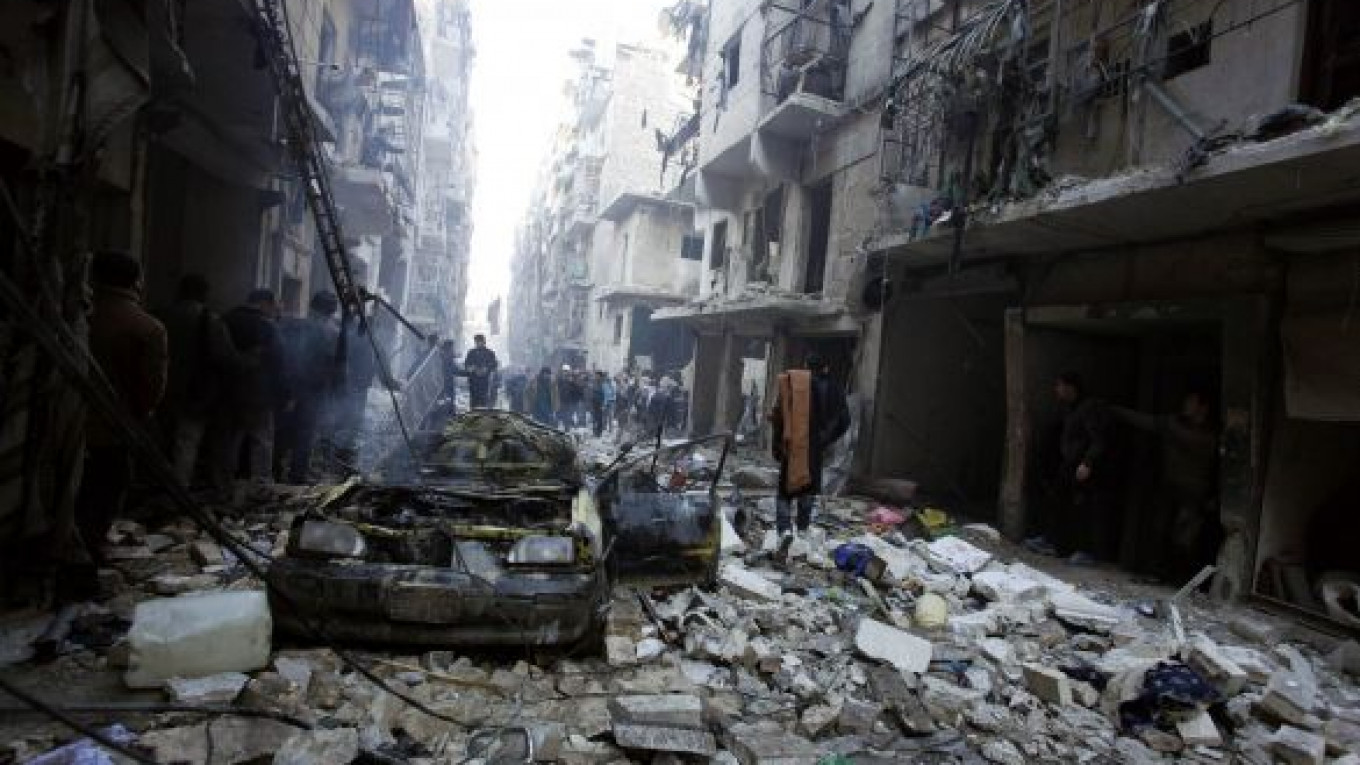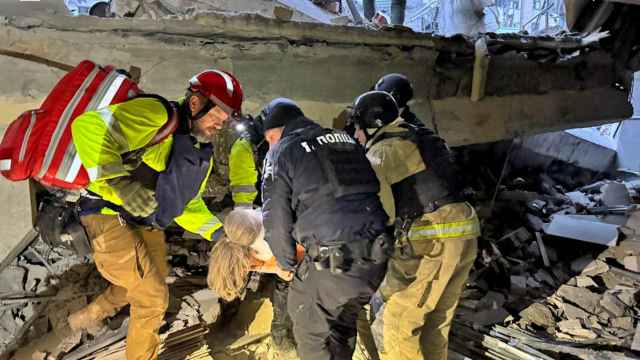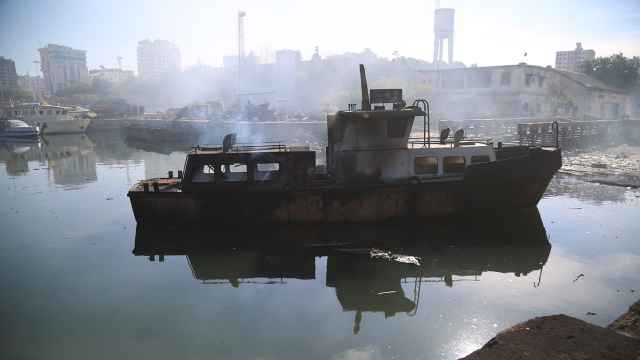UNITED NATIONS — Russia has accused Washington of ignoring Moscow's appeals for proof of Syrian government involvement in chemical weapons attacks in Syria during the country's more than 2-1/2-year-old civil war.
Moscow's allegations against Washington come as both say they are encouraging peace talks that Western powers and Gulf Arab states hope will lead to the departure of Syrian President Bashar Assad and the formation of a transitional government.
"Our requests for additional information, which could prove the Syrian government involvement in the use of chemical weapons, were ignored by Washington," Russian UN Ambassador Vitaly Churkin told reporters Monday after a closed-door meeting on chief UN chemical arms investigator Ake SellstrЪm's final report.
Churkin said allegations about Syrian government involvement in chemical attacks, including an Aug. 21 sarin gas attack that killed hundreds of people, "were not persuasive." He said Moscow viewed the Aug. 21 incident as a provocation by the rebels.
The Russian ambassador referred to what he said was information released by former U.S. spy agency contractor Edward Snowden. U.S. relations with Russia have been strained in recent months partly over Moscow's decision to grant temporary asylum to Snowden, who leaked documents about widespread U.S. surveillance activity.
"The lack of any proof [about Syrian government use of chemical arms] was particularly strange because as the public learned from the media reports based on Edward Snowden's materials, the U.S. had powerful intelligence assets in Syria," Churkin said.
He described those intelligence assets as "sensors capable to provide in real time on any mixing of precursors by the Syrian troops for sarin production. Sarin does not live long."
SellstrЪm's inquiry was only looking at whether chemical weapons were used, not who used them. The Syrian government and the opposition have accused each other of using chemical weapons, and both have denied it.
British Ambassador to the UN Mark Lyall Grant told reporters that "Russia was using the classic diplomatic giant squid defense — if you squirt enough ink into the water, you try to muddy the waters so that people are not clear about what happened."
He added that all of SellstrЪm's reporting, both written and oral, had left no doubt that the Syrian government was responsible for multiple chemical attacks on its own people.
The Aug. 21 sarin gas attack, which Washington said killed more than 1,400 people, many of them children, led U.S. President Barack Obama to threaten air strikes against Syrian military facilities because it had crossed Obama's "red line" for intervening. Facing the threat of U.S. attacks, the Syrian government agreed to dismantle its chemical arms program and describe its arsenal.
"Why would the Syrian government use chemical weapons on Aug. 21?" Churkin said. "To cross the red line drawn by Washington and invite a missile strike upon itself?"
"Why would the opposition use chemical weapons? Exactly because of the red line," he said. "To provoke foreign military intervention in the Syrian conflict. It is absolutely obvious that on Aug. 21 a large-scale provocation was staged."
The U.S. mission did not react immediately to Churkin's remarks, though diplomats said U.S. Ambassador Samantha Power responded to him behind closed doors. She told Churkin that a "Christmas vacation might do the Russian ambassador good," according to a diplomat present.
Churkin said it "was not a very polite comment to make."
Power also told the 15-nation council that the "Russian regime has a remarkable trust in a government that sends rockets at and bombs its own population," the diplomat present at the meeting added on condition of anonymity.
Churkin told reporters that Russia does not trust Syria but has looked at the facts to come up with its assessments.
SellstrЪm's report, released Thursday, said poison gas was likely used in five out of seven incidents investigated by UN experts in Syria, where the civil war has killed more than 100,000 people. It said sarin was probably used in four attacks.
The opposition Syrian National Coalition said SellstrЪm's report implicated Assad and showed that "urgent action, including a referral of the situation in Syria to the International Criminal Court, must be taken to ensure that those responsible for atrocities are held to account."
Diplomats said one of the most telling details in SellstrЪm's report was the fact that helicopters may have been used in some of the attacks. If helicopters were involved, diplomats say, it would implicate the government, as the rebels do not have helicopters.
The report says there were "military helicopters or airplane overflights" at the time of what Washington said was a chemical attack in Aleppo on April 13. It also referred to reports that a likely gas attack in Saraqeb on April 29 may have involved helicopter activity.
Earlier Monday, UN Secretary-General Ban Ki-moon said the fighting in Syria must cease before political negotiations on a transitional government can begin.
"We must have a cessation of hostilities before we begin political dialogue on Syria in Geneva," Ban told reporters in New York. "This fighting must stop."
Churkin did not respond to a question about whether Russia, which is a strong ally of Assad, would support a ceasefire.
A Message from The Moscow Times:
Dear readers,
We are facing unprecedented challenges. Russia's Prosecutor General's Office has designated The Moscow Times as an "undesirable" organization, criminalizing our work and putting our staff at risk of prosecution. This follows our earlier unjust labeling as a "foreign agent."
These actions are direct attempts to silence independent journalism in Russia. The authorities claim our work "discredits the decisions of the Russian leadership." We see things differently: we strive to provide accurate, unbiased reporting on Russia.
We, the journalists of The Moscow Times, refuse to be silenced. But to continue our work, we need your help.
Your support, no matter how small, makes a world of difference. If you can, please support us monthly starting from just $2. It's quick to set up, and every contribution makes a significant impact.
By supporting The Moscow Times, you're defending open, independent journalism in the face of repression. Thank you for standing with us.
Remind me later.






